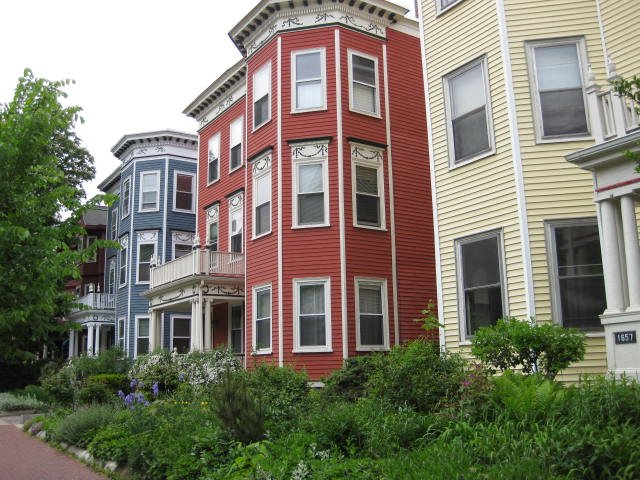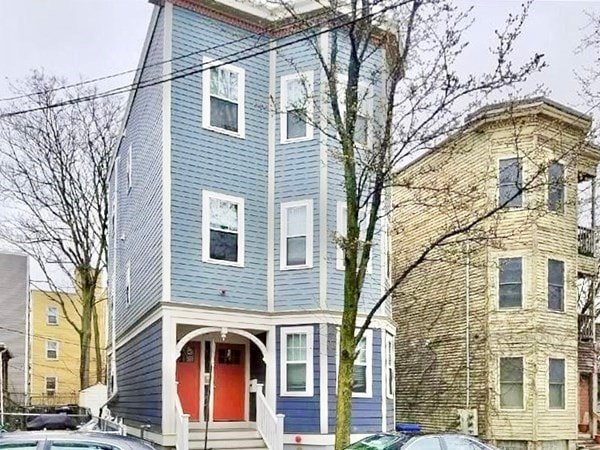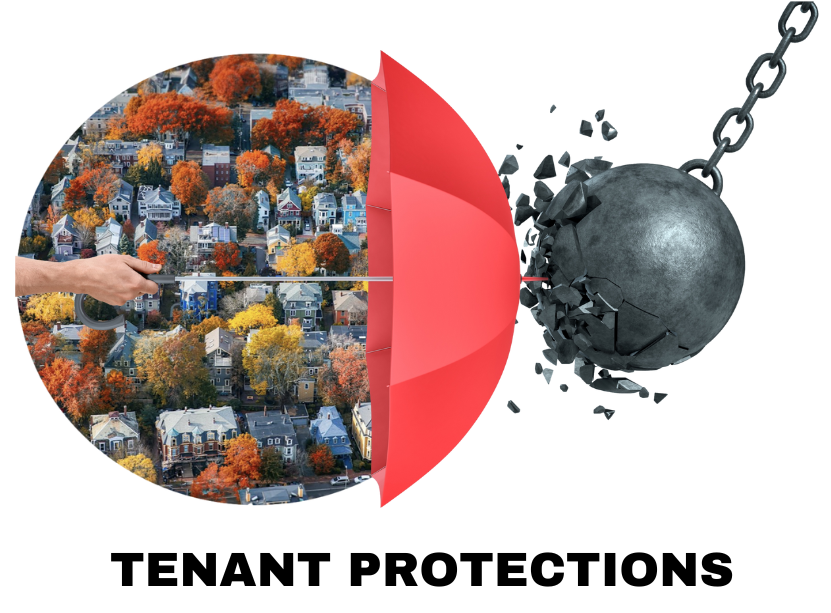The History of Cambridge Zoning
What are folks saying about Cambridge ending Exclusionary Zoning?
Before 1924 Cambridge did not have a land use code. This meant that property owners were free to choose how to develop and use their land.
In 1916, New York City adopted what is considered the first zoning ordinance for urban development. The main purpose was to control the heights of buildings and types of land uses in different parts of the city.
But cities also began to use zoning for other purposes such as to enforce racial segregation. Scholars believe race was one factor that motivated efforts to exclude multifamily and other denser forms of housing from neighborhoods.
Single-family zoning and minimum lot sizes was introduced into the zoning laws in Cambridge in 1943. Thereafter, the city's zoning regulations became increasingly complex, making it extremely expensive to build anything other than single family homes.
In 2021, A Better Cambridge and Sunrise Boston filed a zoning petition, Missing Middle Housing, proposing three-deckers and townhouses throughout the city. HLS Professor Niko Bowie, as an Associate member of the Cambridge Planning Board, spoke eloquently on why the Board should approve this Missing Middle petition. Unfortunately, the Board did not approve the petition.
In 2021 & 2023 city elections, ABC IEPAC again helped elect pro-housing super majorities to the City Council. These pro-housing super stars led the efforts for both expanding the 2020 affordable housing overlay (AHO 2.0) and ending the 1943 single family zoning laws.
Cambridge now allows up to 6 stories citywide, positioning Cambridge as a leader in challenging traditional zoning practices. This is “the most comprehensive citywide rezoning” in the entire US!
The Boston Globe
Cambridge should have enough homes for everyone who wants to live here. Our housing shortage has caused massive displacement and undermines our inclusivity. We must legalize multifamily housing in every neighborhood and add more housing along transportation corridors.
Strategies for housing abundance
End exclusionary zoning citywide
Democratize land use boards
Increase both capital and operating funding for affordable and mixed-income housing development
HOUSING AFFORDABILITY
Every resident should be able to find a home in Cambridge that they can afford. In addition to pushing market costs down, we must create and preserve deed-restricted affordable and mixed-income housing, and we must defend and expand public subsidy programs like rental vouchers and homeownership assistance. The City has an opportunity to encourage affordable and mixed-income development through creative policies and local funding.
Strategies for housing affordability
Build a pipeline of dense, transit-oriented development - through zoning reform, city-led planning, and site-specific development initiatives.
Update inclusionary zoning and other City policies to more effectively address housing needs for more people, particularly households who have been or are at risk of displacement.
HOUSING STABILITY
Tenants should not be at the mercy of their landlords. Cambridge needs to strengthen and protect tenants’ rights, both inside and outside of eviction proceedings. Many tenant protections require state approval, but we have the power to create a universal right to counsel in Cambridge right now while we join other cities and towns in advocating for state-level reforms.
Strategies for housing stability
Pursue rent stabilization policies that may help prevent displacement, both immediately and for the long-term
Coordinate with state legislators and our neighbors to develop broader solutions to extreme and sustained housing cost increases throughout the Commonwealth
ENVIRONMENTAL SUSTAINABILITY
The single best way Cambridge can reduce carbon emissions is to build housing near transit, allowing more people to live more sustainably.
Now that the City has ended mandatory parking minimums and will adopt a new stretch code to deepen and expand sustainable building standards, ABC will work with the Council and key community stakeholders to lower the carbon footprint of our built environment.
ABC’s first three pillars on housing represent a more environmentally sustainable approach to development and key actions towards mitigating climate change.
The City’s adoption of the new stretch code will create a new baseline for sustainable development in Cambridge. We think this is an important, exciting new stage for our built environment.
Strategies for environmental sustainability
Increase funding available to meet these aggressive sustainability goals without hindering housing production.
When new development opportunities come up in key transit-oriented locations, we should prioritize mixed-income development with low/no carbon footprint, particularly as capital funding and/or utility rebates allow.
Our work to increase housing supply in Cambridge is rooted in connecting all types of people with safe, car-free transportation. We prioritize walkable, livable spaces and investment in community health and well-being over the status quo.
CIVIC STANDARDS
Although ABC primarily focuses on housing advocacy, we hold zero tolerance for bigotry, racism, or harassment of any kind and we expect our members and endorsees to meet basic standards of decency. In the context of some city council candidates having posted offensive content, or sharing or liking posts from bigoted and racist accounts, ABC reaffirms its commitment to Cambridge as an inclusive city. We may disagree on housing and other issues, but none of us should tolerate expression that demeans, harasses, or ostracizes any of us.









